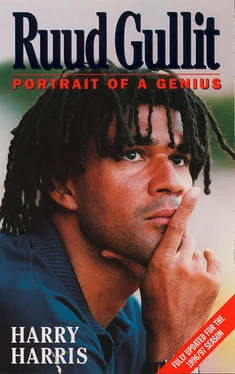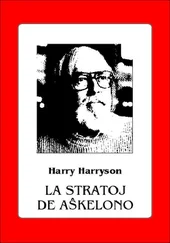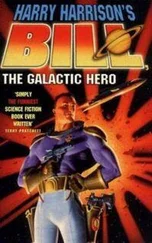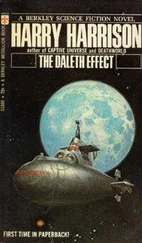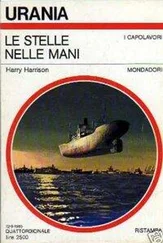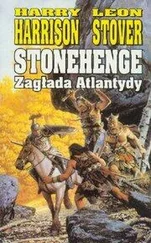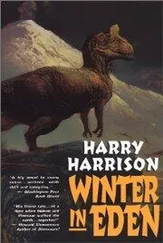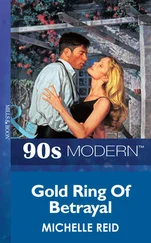Ken Bates presided over years of racial tension. âPaul Cannoville was our first black player and our own fans would throw bananas at him when he warmed up at the side of the pitch. Now we have the first black manager in the Premiership.â Bates battled against racism, and Gullit has helped his campaign. âWith us, it was a question of give a dog a bad name. Yet it was happening at other clubs. Blackburn, for example, never signed a black player; nor did Liverpool for a long time. But donât believe that racism has left the Bridge, it hasnât â it has just been contained. Gullit has had an effect, a marvellous effect, but heâs not the Messiah!â
Maybe not, but his influence is apparent. Fans used to shave their heads in homage to unpalatable and dangerous right-wing groups ⦠now they shave their heads in worship to Vialli.
In his own forthright and inimitable style, Bates discussed the clubâs Big Fish at the Bridge over an exquisite Italian meal of lobster and sea bass at a fashionable Chelsea restaurant, LâIncontro in Pimlico Road. âHoddle bought Gullit, but Hoddle couldnât have bought the players Gullit has! Four years ago we would have been on par with the likes of QPR and Crystal Palace. Hoddle produced that quantum leap by transforming the club into a Little England. Gullit has made it a Little Europe. Gullit has made people realise that English clubs can look beyond the white cliffs of Dover.â
Bates finally got it right in his choice of manager after John Hollins, Bobby Campbell and Ian Porterfield. At the time of Gullitâs appointment he was asked how it felt to be not only starting his first season as manager but also the highest-profile black manager in the English game. There wasnât a flicker of emotion as he responded: âWhether you are black or white, what is important is talent. My father, who studied economics at night school, told me that I would have to work harder than others for what I would achieve. For me, that was the stimulation. I took it positively. I felt proud of who I was, of the colour, everything. Of course, I am aware that Iâm black and that I stand out. But I use it to my advantage. I view it positively. If you feel attacked by your difference, then it is you who has the problem.â
Former Chelsea boss David Webb believes Gullit is destined for the top in management. Webb, still adored by Chelsea fans, is delighted his old club are now FA Cup champions with an eye on winning the league championship in 1997/98. He said: âIf heâs successful here, the really big clubs in Europe will want him. Every move he makes is watched in Europe. Powerful teams like AC Milan will be aware of what he achieves. The biggest clubs want the very best, which is why Cruyff ended up at Barcelona.
âItâs different for English managers. It seems they have to be successful for three or four years at a club before they are considered to be among the best. But in Europe people move about much more. Everythingâs a stage in their career for them. But Iâd love it if Ruud stays at Chelsea for years and really builds something. Itâs great to see Chelsea up there among the best. What the club must do is build over a period of time. Itâs what Iâve set out to do at Brentford and I like to feel weâre reaping the rewards. Thatâs why it pleases me to see youngsters like Morris, Myers and Duberry making an impact at Chelsea alongside the big-money Italian signings.â
Gullit hired Ade Mafe, an Olympic 200-metre finalist and Linford Christieâs former training partner, as fitness trainer. Mafeâs mission was to help the players increase their speed over short distances and to develop their stamina and upper body strength. Gullit saw Mafeâs appointment as helping to address the clubâs failure of not being able to hold onto the lead, which happened on 17 occasions in Hoddleâs final year at Chelsea. The improvement was seen early in the 1996/97 season: Chelsea were stronger in the final 15 minutes than they had been in the previous season and were less likely to make fatigue-induced errors. Gullit said: âWe scored late goals against Middlesbrough and Arsenal and that proved we still had strength at the end of games.â
Mafe had moved into the lucrative world of personal fitness training before being snapped up as part of Ruudâs backroom team. âIt is really good to be back in the elite sporting world again. I feel this is a good challenge and I love a challenge. Iâm working on the playersâ speed off the mark, their leg strength, agility, reaction times and awareness â all things we had to do for athletics that are applicable to soccer.â
But heâs reluctant to take credit for the resurgence in the teamâs fortunes or their vast improvement in the last third of their games. âWhat has happened is down to Ruud and a new era starting. Iâm just a small part of the whole and I want to see the team succeed.â
Ex-Olympian champion and true-Blue fan Sebastian Coe knows Ade well. Both travelled to Los Angeles in 1984 as part of the British Olympic team. âThe science and technique of training in English football has been something thatâs been overlooked for years. Ruud Gullit has recognised that no Continental club would consider training to be something that took place between 10am and midday. I know the Italian set-up well, having lived in Italy for some time, and itâs a full-time 9am to 5pm job with work on technique and conditioning.â Coe points out, though, that athletes have been employed as coaches before in English football training. âNorman Whiteside is one example. He was taught sprinting techniques by Olympic gold medallist Mary Peters. But this is more the exception than the rule. Lessons can also be learned from other sports. If you look at the success of the England rugby union side, it has been based on athletic technique.â
Gullit has effected a Continental-style revolution that started with Ade. Gullit said: âAde has done an excellent job. The players are much fitter now and some go out and do extra work by themselves. Now they understand that if they take care of their bodies then they can last longer in the game.â
Dan Petrescu is used to such methods from Italian football. âAll Ruud is trying to do is to bring Italyâs more professional approach to training to Chelsea. Ade is something new in English football, as he is the first fitness coach in the Premier League. But in Italy the use of fitness coaches is not unusual. Some of the English players were surprised in pre-season how hard the training was. Perhaps they are not used to training as hard as players in Italy. âWe are not horses,â they said. But we should be thoroughbreds, because the games here are so much quicker than in Italy.â
As for Gullitâs transition from player to manager, Petrescu said: âRuudi likes to laugh and joke, but he can also stand apart from us and do what a manager must do. We know he is not happy when we do not play well â even if we win. But he inspires us to play better.â
Gullitâs laid-back manner hides his desire to be as successful a manager as he was a player. Early in the 1996/97 season Dennis Wise said: âWe are all encouraged to put forward our views. He is happy to listen to them. He laughs when we moan but almost always says: âGo out and enjoy yourselves and score some goals.â This is my seventh season at Chelsea. Iâve been in four semi-finals and one final and havenât won anything for my club. Ruudâs attitude is so positive. He wants to win something, and so do I. He makes me believe I will as he does the rest of the team, because he gives us that little bit extra. In fact, this season itâs more than a little bit extra with the players he has bought.â
Читать дальше
